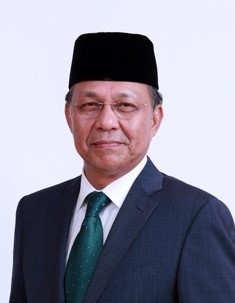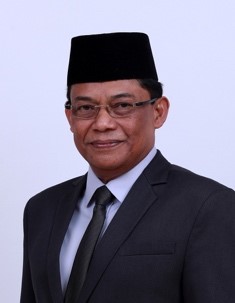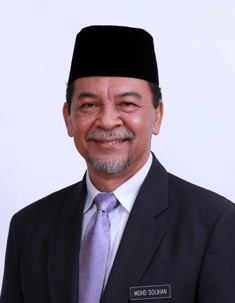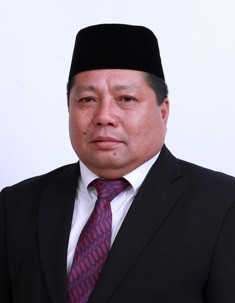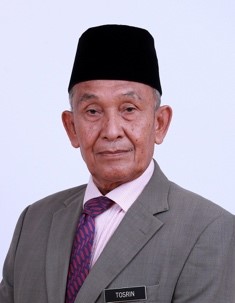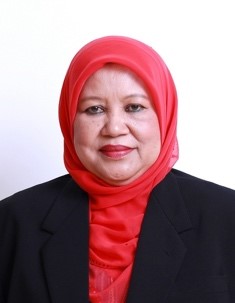Johor’s New Cabinet Line-Up: More of the Same
Published
The new cabinet of Johor closely resembles the traditional Barisan Nasional line-ups in terms of ethnic majority. UMNO’s traditional share of ministerial portfolios is also a blast from the past.
For Barisan Nasional (BN) and United Malays National Organisation (UMNO) especially, Johor is an important state. Johor is inextricably tied up to the foundation history of UMNO. The party was founded by a prominent Johorean, Onn Jaafar, in the state in 1946. For much of Malaysia’s living memory, Barisan Nasional has always done exceptionally well in Johor, often securing a clean sweep of parliamentary seats and at least 80 per cent of state seats.
This trend was overturned in 2018, when the BN-led ruling coalition was swept from power at the state level. Building on a solid performance in 2013, the reconfigured opposition coalition, Pakatan Harapan, obtained 36 out of a total of 56 seats in the state assembly in 2018. The Democratic Action Party (DAP) won 14 seats, Parti Amanah Negara 9 seats, Parti Pribumi Bersatu Malaysia (PPBM) 8 seats, and Parti Keadilan Rakyat five seats.
In the following weeks after the 2018 general elections, PPBM’s ranks grew with several UMNO representatives crossing the floor to join the party. During the 21 months it was in power, the Pakatan Harapan state government in Johor was led by two PPBM assemblymen, Osman Sapian and Sahruddin Jamal.
In an abrupt about-turn, Pakatan Harapan has now been swept from power in Johor. The catalyst was Tan Sri Muhyiddin’s surprise announcement on 24 February that PPBM had withdrawn from the Pakatan Harapan coalition. The political earthquake at the federal level triggered aftershocks at the state level, with Johor leading the way. The fact that Muhyiddin Yassin, apart from being PPBM Party President, holds two elected seats in Johor – the parliamentary constituency of Pagoh, and the state seat of Gambir – is indicative of the political weight of Malaysia’s southernmost state.
At present, PPBM has 11 seats in the Johor state assembly. Its subsequent alliance with BN (16 seats) and PAS (1 seat) under the Perikatan Nasional banner resulted in a hung state assembly. This new alliance managed to garner 28 seats – one shy of the 29 needed for a simple majority.
Yet, despite Pakatan Harapan Johor issuing a press statement on 27 February that PKR, DAP and Amanah continued to command support from 28 state assemblymen, a new Chief Minister was sworn in a day later. The clincher was Chong Fat Full’s decision to leave his party, PKR, and support the new state government as an independent assembly-person. This enabled the new Perikatan Nasional state government to attain a narrow majority.

The outcome was that the new Perikatan Nasional alliance managed to wrestle control of Johor’s state legislature from Pakatan Harapan. The state’s new Chief Minister is Datuk Hasni Mohammad, the assemblyman for the Benut constituency and UMNO Johor Liaison Committee Chairman. A long-time associate of former Chief Minister Khaled Nordin, he held the Public Works, Rural, and Regional Development portfolio in the state cabinet from 2013-2018. Going forward, Hasni will be responsible for implementing the Johor state government’s budget of RM 1.79 billion. This comprises RM 963 million operating expenditure and RM 780 million development expenditure.
Apart from the Chief Minister there are 10 state cabinet positions in the Johor state cabinet. In terms of the allocation across the parties, UMNO and PPBM were each given four positions. The Malaysian Indian Congress, a BN member, and the now-independent Chong Fat Full were each allocated one. This cabinet’s ethnic composition closely resembles the traditional Barisan Nasional line-ups in Johor, with UMNO members being allocated most positions, and non-Malay representatives from MIC and the Malaysian Chinese Association (MCA) getting one position each.
All it takes is for one assemblyman to cross the floor, and all the elaborate planning, backroom horse trading and parcelling out of plum ministerial portfolios will be unravelled.
Unlike the federal level, where cabinet ministers are quite specialised in their portfolios, at the state level, each cabinet member typically juggles two or three portfolios. Looking at the specifics of the cabinet line-up, UMNO obtained the most influential positions. In addition to the Chief Ministership, Hasni is responsible for finance, as well as planning and economic development. UMNO has also bagged the prized local government and housing portfolio. Given Malaysia’s allocation of revenue sources and responsibilities, local governments control sizeable staff numbers and large budgets for maintenance for streets, drains, and other urban infrastructure. Housing has long been a key issue in Johor, with considerable resources dedicated to rolling out low-cost and affordable accommodation over the past few years. Under the ousted Pakatan Harapan government, some RM 200 million was earmarked for this. And, another UMNO assembly-person was awarded responsibilities for rural development and agriculture – which will be key in retaining support in Johor’s eastern and largely rural constituencies.
That said, PPBM was allocated some key portfolios. Of note are transport, infrastructure, and public works which oversee the allocation of projects for roads, bridges, and canals that are largely given out to small Bumiputera contractors. The investment and entrepreneur development portfolios are also attractive, given their responsibility for supporting small businesses. A PPBM member was also made responsible for religion and Islamic affairs – a particularly prestigious position that involves overseeing Johor’s vast religious bureaucracy and liaising with the Sultan.
As with its federal counterpart, the Johor state cabinet was decided upon with considerable care in order to keep its coalition members on board. Nonetheless, the new administration is in power with the slimmest of margins, and PPBM is under considerable strain given the rift between its Chairman, Mahathir Mohamad, and its President, Muhyiddin Yassin. All it takes is for one assemblyman to cross the floor, and all the elaborate planning, backroom horse trading and parcelling out of plum ministerial portfolios will be unravelled.
The New Johor State Cabinet
|
Name |
Portfolio |
Party |
Constituency |
|
|
• Natural Resources |
UMNO | |
|
|
• Investment |
PPBM | |
|
|
• Public Works |
PPBM | |
|
|
• Housing |
UMNO | |
|
|
• Agriculture |
UMNO | |
|
|
• Education |
PPBM | |
|
|
• Islamic Religious Affairs |
PPBM | |
|
|
• Health |
MIC | |
|
|
• Unity |
Independent |
Pemanis |
|
|
• Women, Family, Community Development |
UMNO | |
|
|
• Youth |
UMNO |
Photos from “Senarai Ahli Dewan Negeri” The Official Web of Johor State Cabinet.
2020/39
Francis E. Hutchinson is Senior Fellow and Coordinator of the Malaysia Studies Programme, ISEAS – Yusof Ishak Institute.
Kevin Zhang is an Associate Senior Research Officer at ISEAS – Yusof Ishak Institute.




